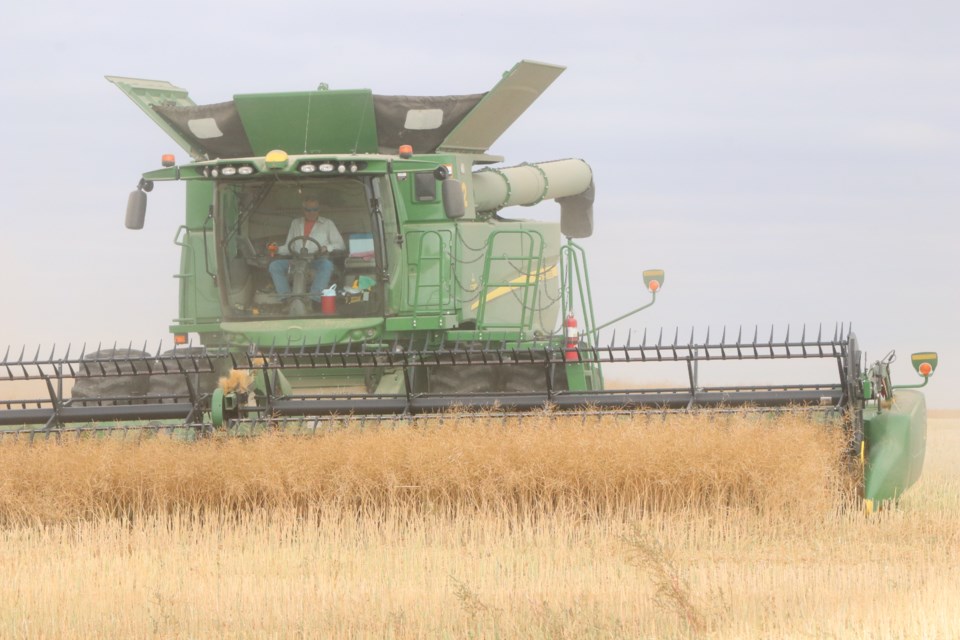HUMBOLDT — As harvest progresses within the region when the weather allows, producers are also busy with equipment maintenance, desiccating and monitoring crop stage for swathing.
Producers indicate rain would still be beneficial on later seeded crops and pastures but areas with more advanced crops are hopeful for rain after harvest is complete to help with replenishing soil moisture.
Harvest progress within the region sits at five per cent. This aligns with the five-year average of five per cent and is ahead of the 10-year average of four per cent.
Within the northeast region currently, 49 per cent of fall rye has been harvested along with five per cent of barley, eight per cent of lentils and six per cent of peas. Of the fall rye harvested within the region, producers indicate grade quality to be 3 CW. A full summary of individual crop harvest progress for all regions can be viewed in the attached harvest progress table.
Rain fell throughout the region with many areas receiving higher amounts. Arborfield recorded the highest amount of rainfall over the past week at 49 mm followed by the Rosthern area at 48 mm. The Duck Lake area received 39 mm and the Nipawin area received 35 mm.
Topsoil moisture conditions remain similar to reports from previous weeks. Currently, cropland topsoil moisture is one per cent surplus, 55 per cent adequate, 42 per cent short and two per cent very short. Hayland topsoil moisture is 53 per cent adequate and 47 per cent short. Pasture topsoil moisture is 47 per cent adequate, 51 per cent short and two per cent very short.
Pasture conditions remain mainly in good to fair condition. Currently, one per cent of pastures are in excellent condition, 41 per cent are good, 45 per cent are fair, 11 per cent are poor and two per cent are very poor.
Crop damage over the past week remains mainly due to the impacts from reduced moisture combined with the increased temperature along with crop lodging due to heavy rain events. Minor to moderate crop damage was reported for wind. As canola continues to mature within the region, sclerotinia stem rot and blackleg infections are being observed.
For more information about Northeastern Saskatchewan, explore the Crop Report Dashboard.




